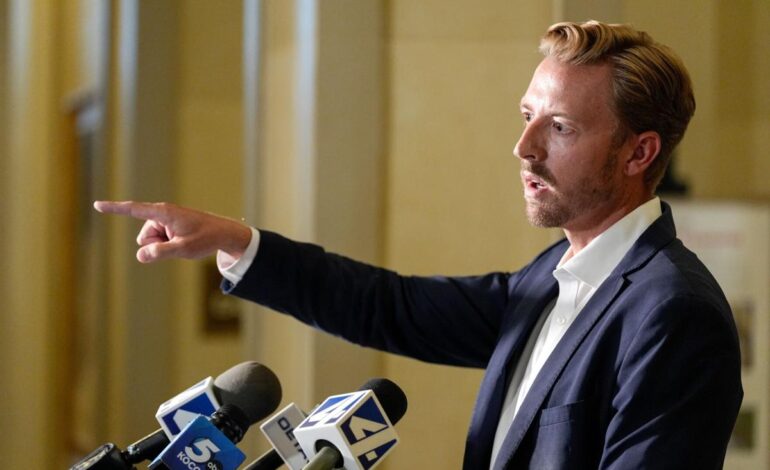Ryan Walters Faces Backlash Over Controversial Moment of Silence

The Oklahoma State Superintendent, Ryan Walters, has come under fire for his recent directive requiring public school students and staff to observe a moment of silence in honor of Charlie Kirk, a national conservative figure who was murdered. The edict, announced on March 4, 2024, has sparked criticism for its perceived exploitation of tragedy for political gain and its impact on the educational environment.
Walters, who has been in office since 2023 on a platform emphasizing the integration of Christianity into schools, has faced backlash for his management of the Oklahoma State Department of Education (OSDE). Critics argue that his actions distract from ongoing issues within the department, including financial mismanagement and a significant teacher shortage.
Controversial Edict Draws Criticism
The moment of silence proposed by Walters was intended to take place at noon on March 5, 2024, coinciding with lunch and class transitions. Critics assert that this request interrupted the structured school day and imposed an additional burden on students and staff. In response, some school districts opted to maintain their legally mandated daily moment of silence, while also allowing individuals to reflect on Kirk’s life and legacy if they chose to do so.
According to local educational leaders, the OSDE overstepped its legal authority with this directive. Schools typically manage moments of silence in a manner suited to their students’ ages and emotional maturity. The decision to mandate a second moment of silence reflects a lack of respect for the expertise of educators, they contend.
Political Maneuvering or Genuine Tribute?
Walters’ actions have raised eyebrows, with many questioning the sincerity of his motives. Critics argue that he is using this tragic event to garner attention and deflect from the mounting challenges facing the OSDE. The Oklahoma Supreme Court recently halted new social studies standards proposed by Walters, which critics allege incorporate Christian nationalist and revisionist historical narratives. This decision is part of a broader legal struggle, with more than 20 state and federal lawsuits filed against Walters and the OSDE.
Despite the controversies surrounding his leadership, Walters has promised to investigate 12 school districts and 70 teachers who allegedly did not adhere to his moment of silence request. This approach has drawn comparisons to McCarthyism, as educators fear repercussions for their political beliefs, even when expressed outside of school hours.
As Oklahoma grapples with an escalating crisis in teacher retention, these distractions from educational priorities raise concerns about the future of the state’s educational system. With over 4,600 untrained teachers currently in classrooms, the focus on political grandstanding rather than addressing core issues could exacerbate existing problems.
Moments of silence, while important, should not be weaponized for political gain. They serve as an opportunity for reflection, allowing students to center themselves before engaging in their daily educational activities. The current situation highlights the delicate balance between honoring personal beliefs and maintaining a focused educational environment.
In conclusion, the controversy surrounding Ryan Walters’ directive underscores a tension between political objectives and the sanctity of the educational process. As Oklahoma’s school districts navigate these challenges, the hope remains for a more balanced approach that prioritizes the needs of students and teachers alike.






